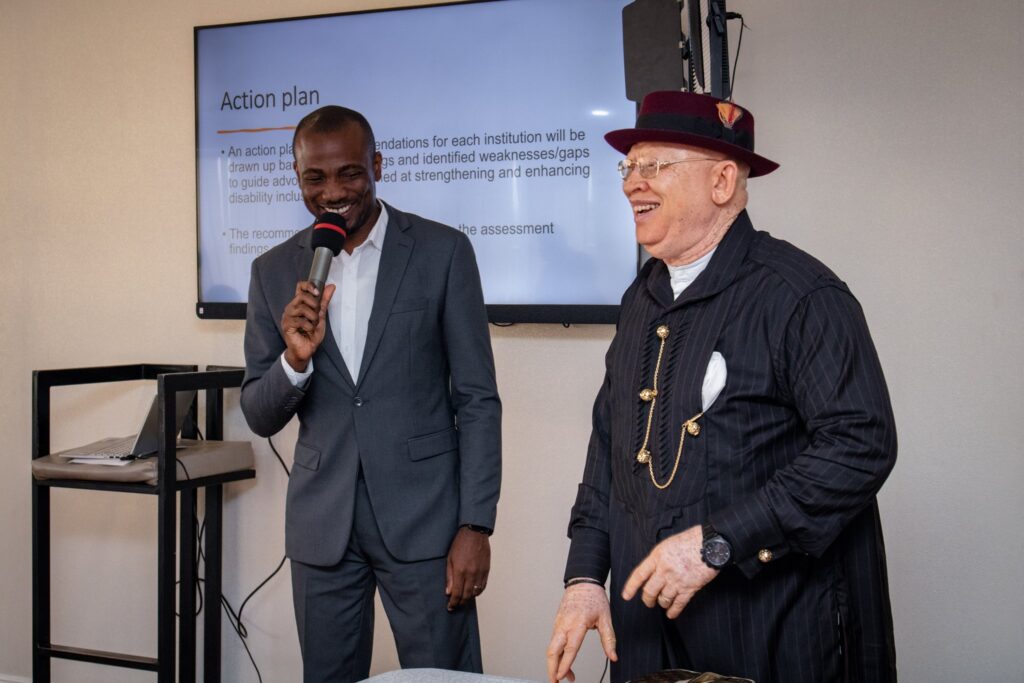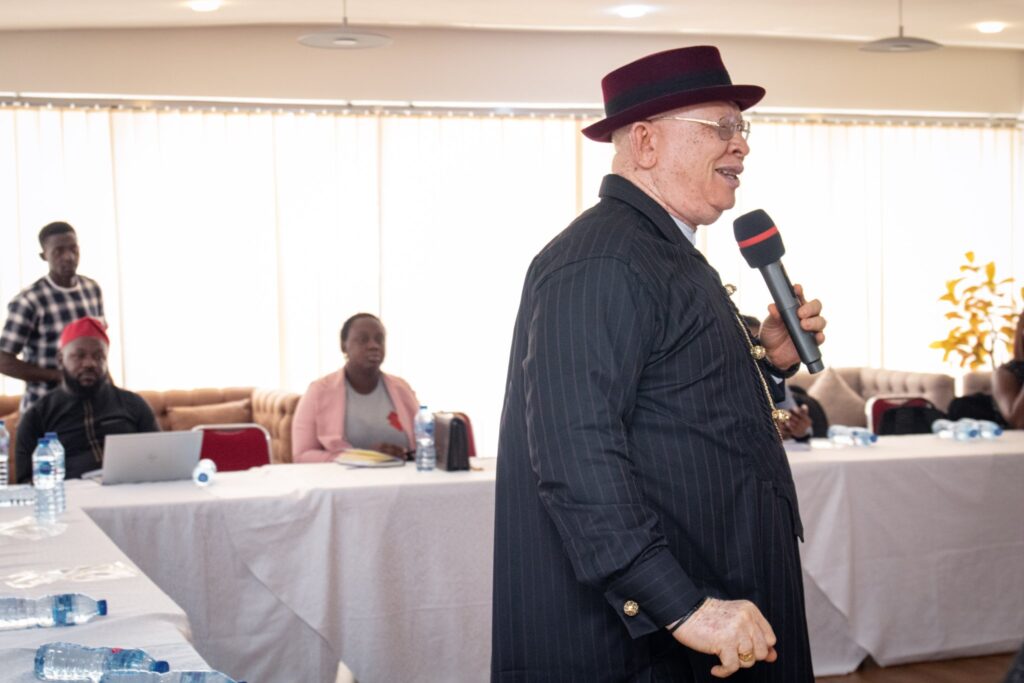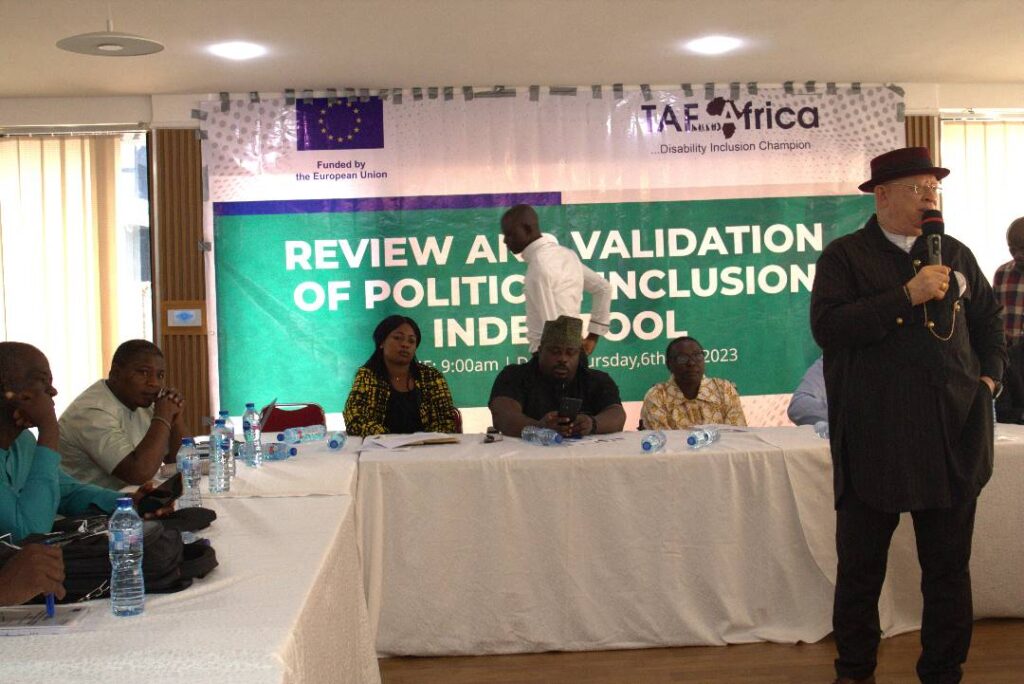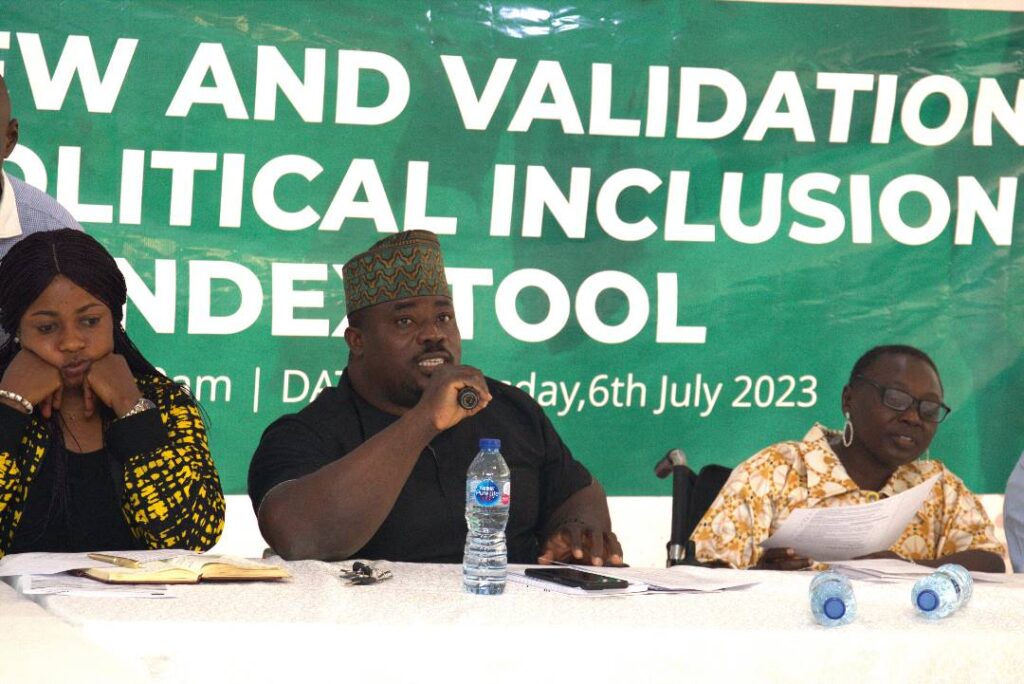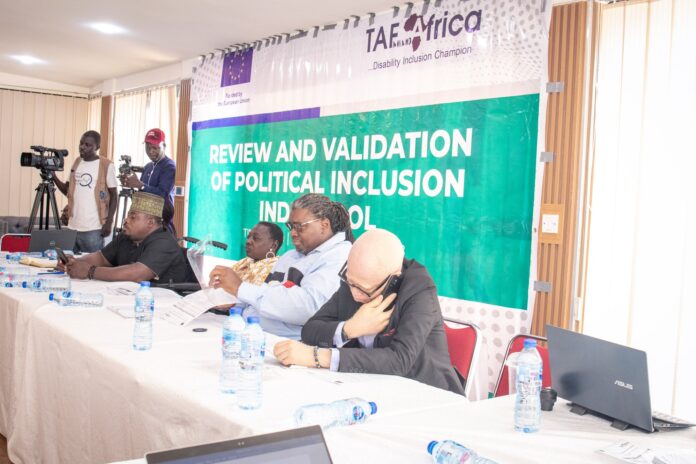TAF Africa on Thursday 6th July, 2023 brought together stakeholders to review and validate political inclusion index tool to enhance inclusion of persons with disabilities (PWDs) in electoral process.
In a project funded by the European union (EU) to enhance the political participation of PWDs, TAF designed political inclusion index tool to assess inclusion of PWDs in elections with the view of enhancing compliance to the laws supporting disability inclusion as well as an advocacy and awareness tool to ensure commitments from these institutions.
The CEO of TAF Africa, Amb. Jake Epelle while addressing the press at the event said that in TAF Africa, there is so much belief in research, data, evidence driven advocacy and implementation, so it is the reason, that there is an agreement that political inclusion index tool for persons with disabilities would be designed to thoroughly investigate some salient issues about disability as it relates to political inclusion.
Olayemi Samuel, Programmes Manager, TAF Africa while addressing the press gave more insight on the project. He said that it is a tool designed to measure the performance of institutions such as electoral management bodies, political parties, security agencies and media organizations in area of inclusion of PWDs in elections.
“That’s assessing the performance of these institutions in Inclusion of PWDs during electoral processes” he added.
Speaking further, he said that there is already laws on disability both in national, regional and international that gives right to PWDs to participate in elections, governance and political processes. However, the tool is also going to help in tracking compliance to those laws in terms of participation of persons with disabilities in the electoral processes.
Reacting to present situation when it comes to Political Inclusion of PWDs, he said that there is progress in terms of disability inclusion in Nigeria.
“We are not where we used to be but we still need to continue with our advocacy to ensure that PWDs are included both in the planning, implementation and decision making process. These will go a long way in enhancing the inclusion of PWDs in political process” he concluded.
One of Stakeholders at the Validation Meeting, Lois Auta, CEO, Cedar Seeds Foundation while reacting to what these institutions are doing to promote disability inclusion presently.
“We are not yet where we want to be but we are no longer where we used to be, section 30 of Discrimination Against Persons With Disabilities (Prohibition) Act 2018, Article 29 of UNCRPD made it a matter of right for PWDs to participate in politics. So it is up to these agencies to do more to enhance inclusion of PWDs in their operations.
She appreciated TAF Africa and their funder EU for the wonderful initiative which will serve as a tool to hold the major actors accountable on issues of political inclusion of PWDs.
The Consultant, Omojo Adaji who put together the document while presenting the overview of the index tool said that the whole essence of the meeting is for stakeholders to look the indicators, ascertain if they will addressed the salient issues that will help to enhance political inclusion of PWDs.
She also said that through the index tool, indicators would be used to assess the issues in order for them to know their rate of disability inclusion compliance and make efforts to improve where there is gaps.
She also said that the indicators were developed to measure political inclusion of the institutions within identified four key component (Policy Commitment, Accessibility and Accomodation, Engagement and Consultation, and Participation and Representation).
“Each assessment area comprises of five indicators, that is twenty indicators for each institution and assessment areas are applicable to all institutions but the specific indicators within each are tailored to suit the context of each institution” she added.
She equally said that Indicators development took into consideration the relevance, reliability and it’s measurability.
She explained that the tool has a scoring system that provides three options for each indicator, “No, Partially and Yes with correspond grading scores of 0, 2.5, and 5 respectively for the 20 Indicators for each institution. The maximum attainable scores is 100. After the scoring, it would be ascertain if an institution is at Minimal Inclusion, Limited Inclusion, Moderate Inclusion, Good Inclusion and Excellent Inclusion.
In conclusion, she said that recommendations arises from the findings after this exercise in each institution will be used to identify the weakness, gaps to guide advocacy aimed at strengthening and enhancing disability inclusion.
The stakeholders who were drawn from Organizations of Persons With Disabilities, CSOs and The Media made inputs in the document and it now await final touches by the consultant. Then the process of administering the tool on the institutions.
